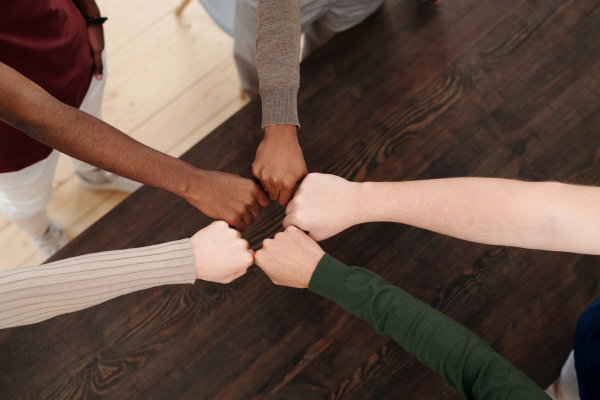
The Mexican Consulate in Orlando is collaborating with the Church of Jesus Christ of Latter-day Saints and Catholic Charities to increase the opportunities accessible to the Latino or Hispanic population of the state by enhancing education, especially for women.
On Tuesday, Feb. 7, Juan Sabines Guerrero of the Mexican Consulate met with Elder Daniel P. Amato and Deacon Gary Tester to discuss their collaboration. Elder Daniel P. Amato is the Area Seventy in the Church's North America Southeast Area, while Deacon Gary Tester is from Catholic Charities of Central Florida. According to Tester, they are pleased to have been able to assist the Latino community. However, there is much more that they can accomplish with the assistance of their friends from The Church of Jesus Christ of Latter-day Saints.
During the meeting, Sabines discussed how faith became the answer to their problems in the community and how it solved their difficulties. He extended an invitation to the congregation this coming Saturday to teach English, instruct their women on how to become secure and confident, and instruct people on how to create an independent, self-sufficient, and trustworthy community.
Programs of the Mexican Consulate for Latino Community
The Mexican Consulate in Orlando hosted an informational meeting and sign-ups for English Connect sessions last Saturday, Feb. 11. The Church of Jesus Christ of Latter-day Saints offers a program called English Connect to assist people in becoming more self-sufficient and expanding their opportunities through studying the English language. Classes in Orlando will be taught by missionaries serving full-time with the Florida Orlando Mission.
On the other hand, the church's self-reliance courses are set to begin in March. It will be taught in the Orlando region by the presidents of the local stakes of the Relief Society. The goal of each class is to assist women in meeting their emotional/mental, temporal, and spiritual requirements. Catholic Charities and the Mexican Consulate in Orlando are developing further avenues to potentially collaborate to address the needs of the Latino community in Orlando.
A report from Latino Policy and Politics Institute says that Latinos comprise 26% of the state's total population, making them Florida's second-largest racial and ethnic group. The Non-Hispanic White Floridians are the majority of the state's population (54%), followed by Black Floridians (15%) and Asian Americans and Pacific Islanders (3%), respectively.
About the Church of Jesus Christ of Latter-day Saints
In 1845, when Phineas Young, the brother of church president and western colonist Brigham Young, visited the state, Florida already had a rich Mormon history. During that time, Phineas exposed Native American tribes to church. The church's growth was gradual but consistent, and by 1897, the first formal congregation in the state of Florida had been established in Jefferson County.
Accordingly, in 1947, church officials established the first stake in Florida, encompassing most of the state. A stake resembles a diocese. In October 1970, church president Spencer W. Kimball flew to Miami to organize the Fort Lauderdale Stake, almost 15 years after the organization of the first stake.
Throughout the years, many congregations have been established all over Florida. 1994 marked the dedication of the first temple in the state, the Orlando, Florida Temple. As the church flourished, its diversity rose, and the number of Cuban, Latin American, and Caribbean immigrants increased.
In 2009, church president Thomas S. Monson announced the construction of a temple in Fort Lauderdale, Florida, in response to the increase in membership. In the summer of 2011, construction began. The 30,500-square-foot Fort Lauderdale Temple will serve about 30,000 members in South Florida.
Related Article: The Church of Jesus Christ of Latter-Day Saints Support LGBTQ+ Rights and Same Sex Marriage
The Mexican consul in Orlando met with representatives from the @Ch_JesusChrist and Catholic Charities. See what their collaboration looks like. https://t.co/KefopdUu2a
— Church News (@the_churchnews) February 14, 2023

















